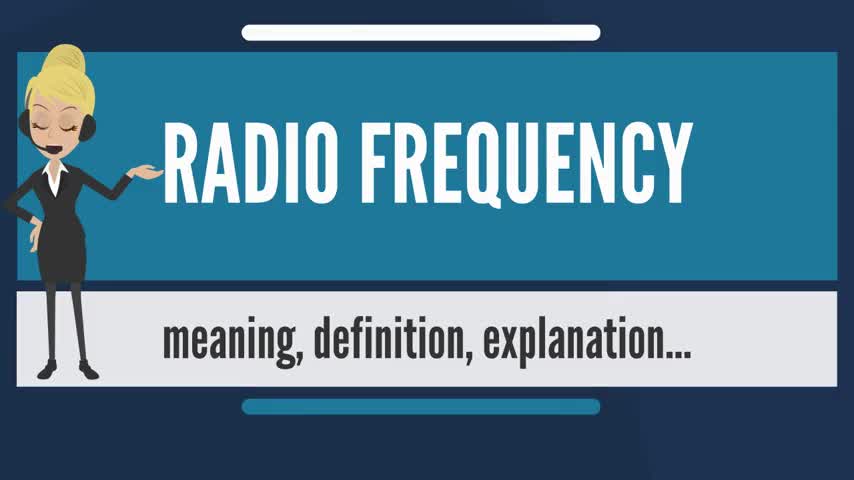Premium Only Content

What is RADIO FREQUENCY? RADIO FREQUENCY, Its Meaning and Explanation
In this video, viewers will be able to understand what Radio Frequency is all about.
- Meaning of Radio Frequency
-In-depth explanation about Radio Frequency.
At the end of this video, viewers will learn about Radio Frequency and how it is relevant to Amateur Radio Practices.
What is RADIO FREQUENCY? What does RADIO FREQUENCY mean? RADIO FREQUENCY meaning - RADIO FREQUENCY definition - RADIO FREQUENCY explanation.
Source: Wikipedia.org article, adapted under https://creativecommons.org/licenses/... license.
Radio frequency (RF) is any of the electromagnetic wave frequencies that lie in the range extending from around 3 kHz to 300 GHz, which include those frequencies used for communications or radar signals. RF usually refers to electrical rather than mechanical oscillations. However, mechanical RF systems do exist (see mechanical filter and RF MEMS).
Although radio frequency is a rate of oscillation, the term "radio frequency" or its abbreviation "RF" are used as a synonym for radio – i.e., to describe the use of wireless communication, as opposed to communication via electric wires.
Electric currents that oscillate at radio frequencies have special properties not shared by direct current or alternating current of lower frequencies.
The energy in an RF current can radiate off a conductor into space as electromagnetic waves (radio waves); this is the basis of radio technology.
RF current does not penetrate deeply into electrical conductors but tends to flow along their surfaces; this is known as the skin effect.
RF currents applied to the body often do not cause the painful sensation of electric shock as do lower frequency currents. This is because the current changes direction too quickly to trigger depolarization of nerve membranes. However they can cause superficial but serious burns called RF burns.
RF current can easily ionize air, creating a conductive path through it. This property is exploited by "high frequency" units used in electric arc welding, which use currents at higher frequencies than power distribution uses.
Another property is the ability to appear to flow through paths that contain insulating material, like the dielectric insulator of a capacitor. This is because capacitive reactance in a circuit decreases with frequency.
In contrast, RF current can be blocked by a coil of wire, or even a single turn or bend in a wire. This is because the inductive reactance of a circuit increases with frequency.
When conducted by an ordinary electric cable, RF current has a tendency to reflect from discontinuities in the cable such as connectors and travel back down the cable toward the source, causing a condition called standing waves. Therefore, RF current must be carried by specialized types of cable called transmission line.
To receive radio signals an antenna must be used. However, since the antenna will pick up thousands of radio signals at a time, a radio tuner is necessary to tune into a particular frequency (or frequency range). This is typically done via a resonator – in its simplest form, a circuit with a capacitor and an inductor form a tuned circuit. The resonator amplifies oscillations within a particular frequency band, while reducing oscillations at other frequencies outside the band. Another method to isolate a particular radio frequency is by oversampling (which gets a wide range of frequencies) and picking out the frequencies of interest, as done in software defined radio.
The distance over which radio communications is useful depends significantly on things other than wavelength, such as transmitter power, receiver quality, type, size, and height of antenna, mode of transmission, noise, and interfering signals. Ground waves, tropospheric scatter and skywaves can all achieve greater ranges than line-of-sight propagation. The study of radio propagation allows estimates of useful range to be made.
Radio frequency (RF) energy, in the form of radiating waves or electrical currents, has been used in medical treatments for over 75 years, generally for minimally invasive surgeries using radiofrequency ablation including the treatment of sleep apnea. Magnetic resonance imaging (MRI) uses radio frequency waves to generate images of the human body.
Many thanks to The Audiopedia
License
Creative Commons Attribution license (reuse allowed)
-
 2:28
2:28
Amateur Radio and All about Ham Communication
3 years ago $0.02 earnedWhat is FREQUENCY MODULATION? FREQUENCY MODULATION meaning and Use for Amateurs
333 -
 2:33
2:33
ExclusivelyHolistic
3 years agoRadio Frequency from a Cellphone Tower measurement
103 -
 3:52
3:52
Amateur Radio and All about Ham Communication
3 years agoWhat is a TRANSMITTER? TRANSMITTER meaning, definition & explanation for Amateurs
3371 -
 19:30
19:30
DeVory Darkins
8 hours ago $29.03 earnedJoe Rogan MOCKS The View as Bill Maher HUMILIATES Woke Scientist
63.4K96 -
 LIVE
LIVE
Scottish Viking Gaming
10 hours ago🔴LIVE | SUNDAY FUNDAY | Jump into my Sons of the Forest Game | DOO EET NOWWA!
773 watching -
 24:01
24:01
Winston Marshall
4 days agoThe TRUTH About The UK Farmer Protest What No One Is Talking About...
67.3K155 -
 3:21:56
3:21:56
Tate Speech by Andrew Tate
14 hours agoEMERGENCY MEETING EPISODE 93 - ME TOO!
248K160 -
 3:21:42
3:21:42
FRENCHY4185
10 hours agoPRESTIGE AND CAMO GRIND : BLACK OPS 6
68.9K2 -
 1:29:47
1:29:47
Real Coffee With Scott Adams
10 hours agoEpisode 2669 CWSA 11/24/24
97.5K36 -
 13:52
13:52
Hershberger's Kitchen
21 hours agoTwo Delicious Dip and Spread Recipes to Try, Inspirational Thought
84.6K5